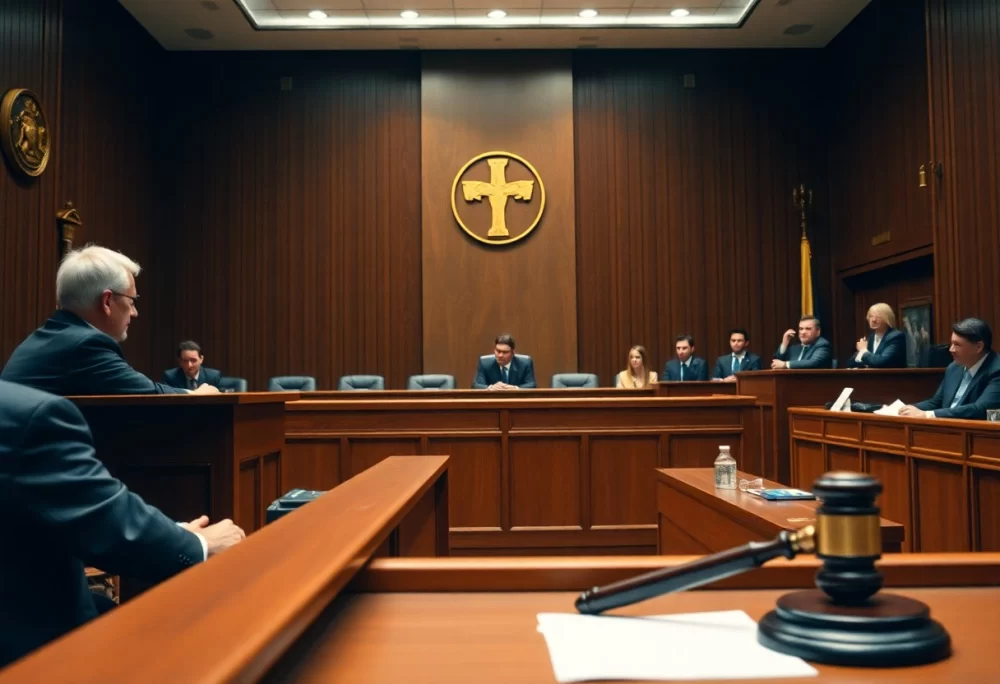- 1-Overview-of-Criminal-Trial-Process
- 2-Pre-Trial-Procedures-and-Preparation
- 3-Jury-Selection-and-Opening-Statements
- 4-Presentation-of-Evidence-and-Witness-Testimonies
- 5-Closing-Arguments-and-Jury-Deliberation
- 6-Verdict-and-Post-Trial-Actions
- 7-Professional-Support-and-Fred-Miller-Lawyer
1. Overview of the Criminal Trial Process
When facing criminal charges, understanding what to expect in a criminal trial can alleviate some of the uncertainty and stress. A criminal trial is a formal legal proceeding where the prosecution presents evidence against the defendant, who in turn can challenge the charges through defense strategies. The goal is to determine the defendant’s guilt or innocence based on facts and legal standards.
This process unfolds in several stages, each with specific rules and courtroom dynamics that significantly impact the trial's outcome.
1.1 The Role of the Defendant and Legal Counsel
The defendant is presumed innocent until proven guilty, and legal counsel plays a crucial role in protecting their rights, presenting evidence, and cross-examining witnesses. Effective preparation and a strong defense strategy are essential components in navigating the trial.
2. Pre-Trial Procedures and Preparation
Before the trial begins, several important steps occur to set the stage:
2.1 Arraignment and Plea
The defendant is formally charged and enters a plea, which can be guilty, not guilty, or no contest. This stage determines how the trial will proceed.
2.2 Discovery and Evidence Exchange
Both sides share information and evidence to prepare their cases, including witness lists and documents.
2.3 Pre-Trial Motions
Legal arguments may be presented to resolve certain issues before trial, such as excluding improper evidence.
3. Jury Selection and Opening Statements
Jury selection is a critical part of the process. Potential jurors are questioned to ensure impartiality and fairness. Once selected, both prosecution and defense deliver opening statements outlining their case perspectives.
3.1 Importance of Jury Composition
The attitudes and backgrounds of jurors can influence their interpretation of evidence, making this stage pivotal.
4. Presentation of Evidence and Witness Testimonies
This phase involves presenting physical evidence, expert analysis, and witness testimonies. The prosecution presents first, followed by the defense’s opportunity to challenge or introduce their own evidence.
4.1 Cross-Examination Techniques
Defense attorneys carefully question witnesses to identify inconsistencies or bias, aiming to weaken the prosecution’s case.
5. Closing Arguments and Jury Deliberation
After all evidence is heard, both sides summarize their key points in closing arguments. The jury then deliberates in private to reach a verdict.
5.1 What Happens During Deliberation
Jurors discuss evidence and legal standards, striving for unanimous agreement, though some jurisdictions allow majority verdicts.
6. Verdict and Post-Trial Actions
The jury announces the verdict, which can be guilty, not guilty, or, in some cases, a mistrial. If guilty, sentencing follows either immediately or in a separate hearing.
6.1 Appeals and Legal Recourse
Defendants have the right to appeal convictions or sentences based on legal errors or new evidence.
7. Professional Support and Fred Miller Lawyer
Navigating what to expect in a criminal trial is challenging without expert guidance. Fred Miller Lawyer offers comprehensive legal support tailored to your case, ensuring your rights are protected and your defense is robust.
With years of courtroom experience and a commitment to client advocacy, Fred Miller Lawyer provides personalized strategies and clear communication to help you through every stage of the trial.
Facing a criminal trial? Contact Fred Miller Lawyer to gain confidence, clarity, and the best possible defense to protect your future.


 knipp law office cornelius nc
knipp law office cornelius nc beutler law
beutler law jacobs & comerota
jacobs & comerota oath law long island
oath law long island 10411 motor city drive bethesda md 20817
10411 motor city drive bethesda md 20817 sullivan papain and block
sullivan papain and block